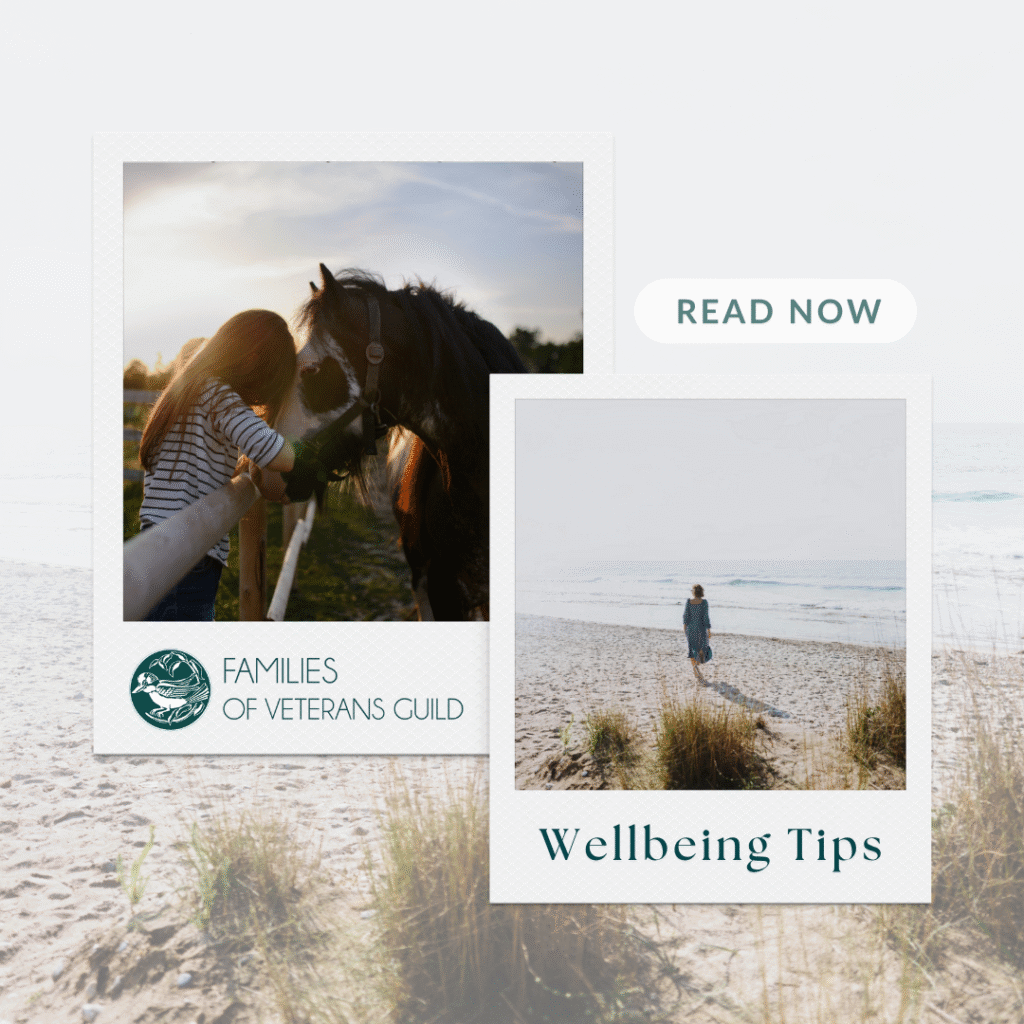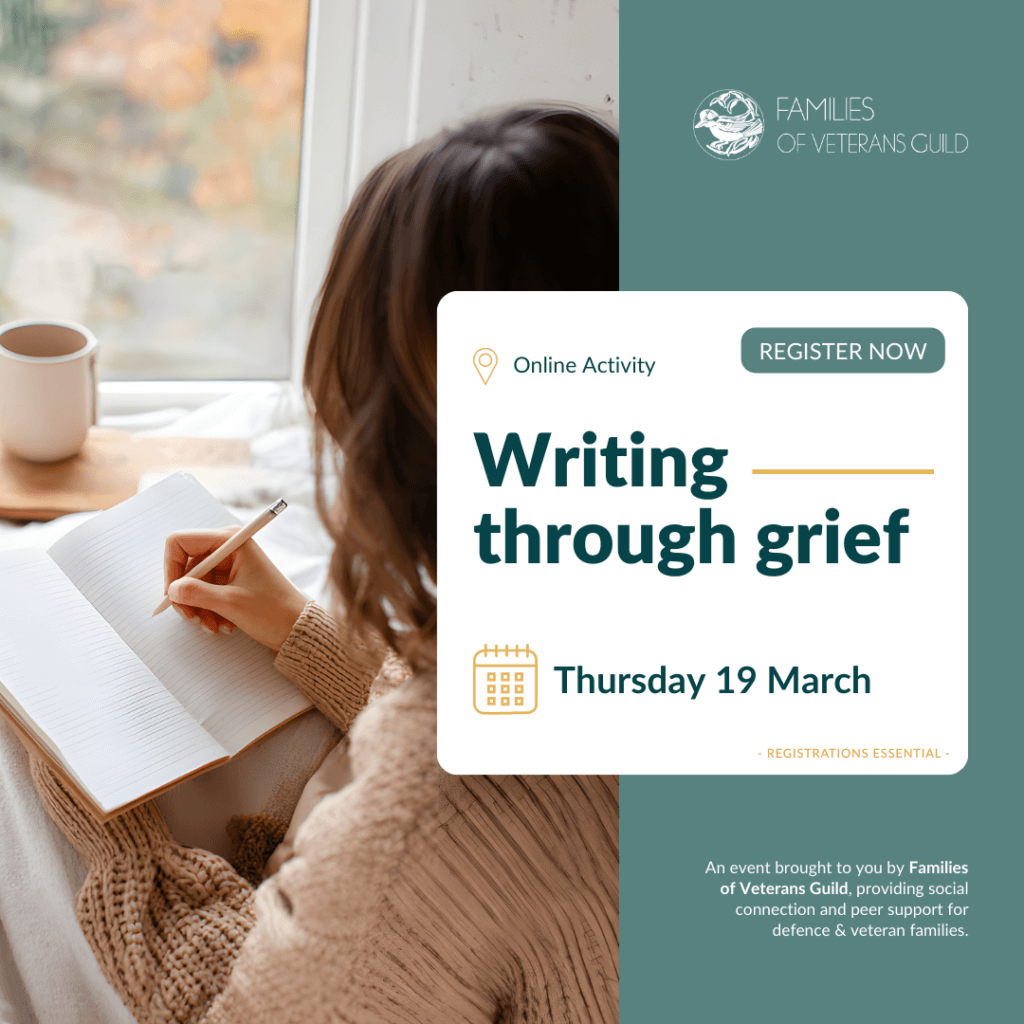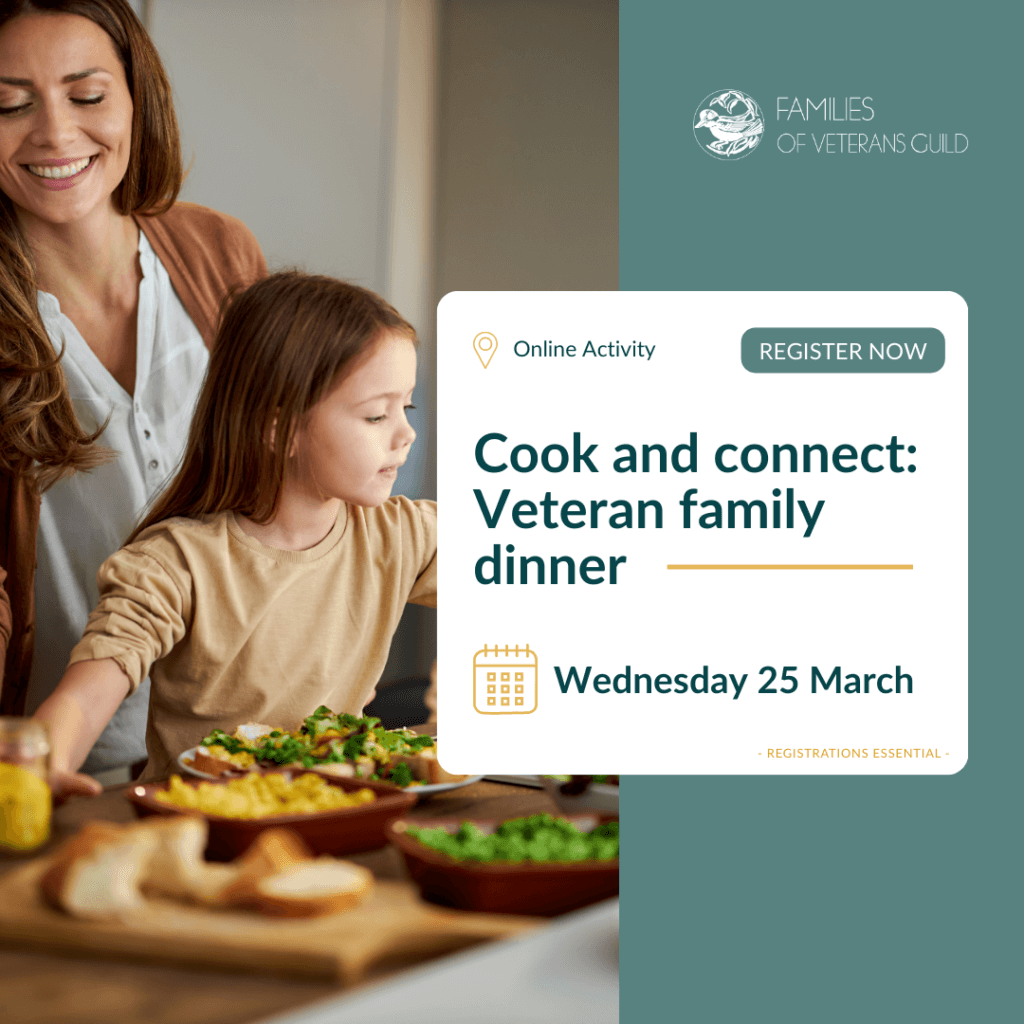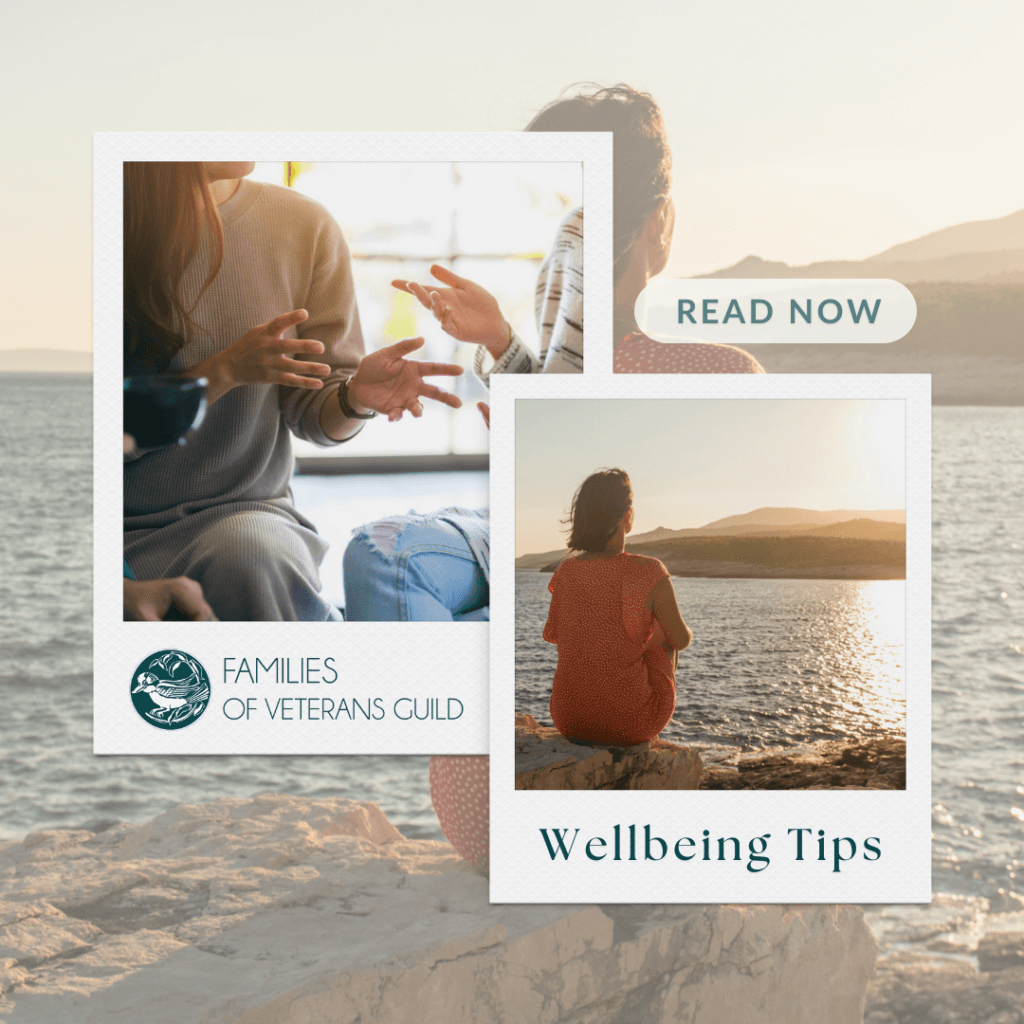Sharing our latest wellbeing tips for war widows, defence and veteran families
Looking after your wellbeing is vital, especially for war widows, defence and veteran families navigating unique challenges. Below you’ll find 3 practical tips from our latest Wellbeing Newsletter that could benefit you and your wellbeing!
Animals as co-creators of connection
Animals, particularly horses, can play a profound role in helping us reconnect with ourselves and others through attunement and reflection. Horses are incredibly attuned to their surroundings. They respond authentically and without judgment to the emotions, intentions, and body language of those around them. This innate sensitivity makes them ideal learning partners for emotional regulation, communication skills, and healing. By observing and interacting with a horse, we’re invited to slow down, listen inwardly, and build a deeper connection with ourselves and others.
How animals help us reconnect
This capacity to co-regulate with humans isn’t limited to horses. Service animals and emotional support animals, such as dogs, are also trained to sense and respond to human emotional states. Their companionship supports connection and healing, particularly in populations such as veteran families, where attachment may be disrupted due to the impacts of military service. Equine therapy, in particular, offers families of veterans a pathway to rebuild trust and develop safe, secure attachments through consistent, mutual interactions in a safe environment.
Nature-based sessions with horses provide a safe, open space to explore difficult emotions, practice setting boundaries, and even navigate uncomfortable conversations. Their congruent, non-verbal responses help us experiment with new ways of connecting and relating in a secure, feedback-rich environment. Animals don’t just support us, they partner with us, offering a non-judgmental presence, helping us rediscover trust, authenticity, and belonging.
If you are interested in finding out more about equine therapy and other animal assisted therapies which are accessible for veterans, war widows, and families of veterans, explore the resources below:
- Spur Ranch Equine Program – RSL LifeCare
- The Healing
- Remount – Assisting those who have served to get ‘back in the saddle’ and reconnect through horsemanship.
- Home – Horse Aid
Practising mindfulness through kindness
Practising mindfulness through kindness is a simple yet powerful way to nurture our wellbeing. Like mindfulness, kindness is a human quality that requires intentional action and practice to realise its potential, and also like mindfulness, kindness is good for our physical and emotional wellbeing. Research shows that practising kindness stimulates the vagus nerve, which is connected to the brain’s receptor network for oxytocin, the soothing hormone.
Kindness triggers the reward system in our brain’s emotional regulation centre, releasing dopamine, which is responsible for positive emotions. Kindness reduces stress, anxiety and depression, putting us, and others, at ease. Practising kindness works wonders in the relationship we have with ourselves, and with everyone around us.
Practising mindfulness for yourself and others
The more we practice kindness, the better we get at it, until we unconsciously choose kindness over our habitual reactions, even in challenging moments. Kindness can begin with small acts; offering a smile to a stranger, giving way in traffic, or patiently helping a colleague – there are countless ways to show kindness to others. But showing kindness to yourself is equally important. Ways to practice self-kindness include:
- Noticing your self-talk and speaking to yourself with positivity and kindness. Treat yourself as you would a loved one or friend, with acceptance and support instead of judgement.
- Practice being kind, especially when you are cranky, as this is when it is hardest. Use the acronym S-T-O-P: Stop; Take a breath; Observe what is happening; Practice responding rather than reacting.
- Practice daily loving-kindness meditation by spending time repeating affirmations such as “May I be peaceful” or “May I be filled with loving kindness” (or one of your own choosing), then directing the same wishes towards the people around you, even those you find challenging.
Over time, these practices can increase positive emotions, build resilience and foster more compassionate relationships, promoting personal and communal wellbeing.
The gift of listening
For many veteran families, life has been shaped by experiences that carry deep impact such as separations, relocations, loss, or living with the ongoing impacts of service. These experiences are often carried quietly and can sometimes feel too heavy to share. In these moments, one of the most healing things we can offer is the gift of listening.
Listening is not about having answers or solutions. It is about being present, patient, and open to whatever someone feels able to share. When we listen with compassion and without judgment, we create a space of safety where people can speak in their own time, in their own way.
Benefits of offering the gift of listening
Trauma can sometimes make it difficult to find words, listening does not always involve talking. It can be sitting together in silence, offering gentle acknowledgment, or respecting when someone is not ready to share. These quiet forms of presence can be just as powerful, reminding us that connection does not require anyone to relive or retell painful memories before they feel ready.
Listening is also something we can practice with ourselves. Taking moments to notice our feelings, honouring them without self-criticism, and allowing ourselves rest and gentleness are forms of self-listening. This practice helps build the capacity to hold space for others with greater empathy. The gift of listening recognises that each person’s journey is unique. By listening deeply, we acknowledge not only the hardships but also the courage, resilience, and wisdom that exist within our community of veterans, war widows, and families. Together, through listening, we can build connection, trust, and healing.
If you would like to experience a supportive listening space, you are warmly invited to our upcoming wellbeing activities in October.
Subscribe to our Wellbeing Newsletter for monthly updates on all activities available in your area, what’s been happening in our Wellbeing Program and also for more tips like this.




